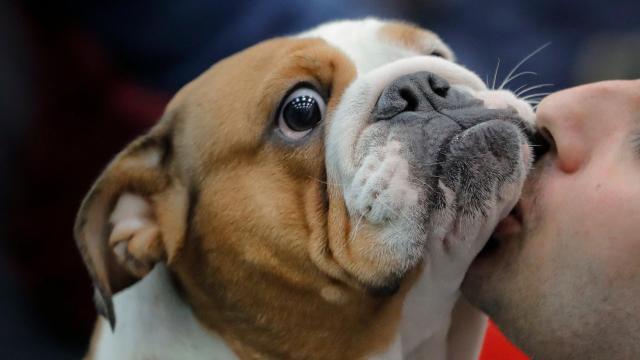Cuddling up to your pets during the pandemic may be riskier than assumed — for the pets, that is. New research out this week suggests humans are regularly transmitting covid-19 infections to their four-legged friends, though pets don’t seem to spread it further to other humans in the home. Though most infections from the coronavirus tend to be mild or asymptomatic, the findings may warrant added caution for pet owners who contract the viral illness.
Since early on in the pandemic, there have been reports of animals catching the virus behind covid-19. Dogs, cats (big and small), and members of the weasel family, like minks and otters, are all known to have been infected, usually through contact with humans. But with the exception of minks, nearly all of these cases are thought to have been milder than the typical illness humans can get and unlikely to be a source of further transmission.
Much of the research on animals getting covid-19 has been limited to experiments in the lab or isolated incidents. This new preliminary research, presented this week at the European Congress of Microbiology and Infectious Diseases, is seemingly one of the first to try quantifying how often these cases may be happening.
Veterinary researchers in the Netherlands, led by Els Broens of Utrecht University, commandeered a mobile clinic and visited the households of around 200 families where at least one person was known to have contracted the virus at some point. Then they tested their dogs and cats for an active infection of the coronavirus, as well as for antibodies indicative of past exposure. In total, 156 dogs and 154 cats were tested.
At the time, 4.2% of the animals were shown to have an active infection, while 17% had antibodies. But the pets seemed to experience few symptoms when infected. The researchers also found little evidence of these infections having spread from pets to other members of the home, including other pets, suggesting that humans were almost certainly the only source of these mini-outbreaks.
Many scientists believe that the earliest strains of the coronavirus likely crossed over from animals to humans, and minks have passed on the germ to humans during outbreaks at mink farms. But to date, there have been no confirmed cases of pet-to-human transmission of covid-19.
“About one out of five pets will catch the disease from their owners,” Broens told Reuters. “Luckily, the animals do not get very ill from it.”
Ideally, research from other countries will be done to confirm the team’s findings. But despite the likely low risk to these animals, Broens and her colleagues do think that pet owners who suspect they’ve caught covid 19 should be just as cautious around their pets as they would around other people. And unfortunately, that caution also applies to bed time.
“A lot of the pet owners are in very close contact, like they sleep with their animals in their bed, so you can imagine that there’s close contact, so that transmission can take place,” she told Reuters.
